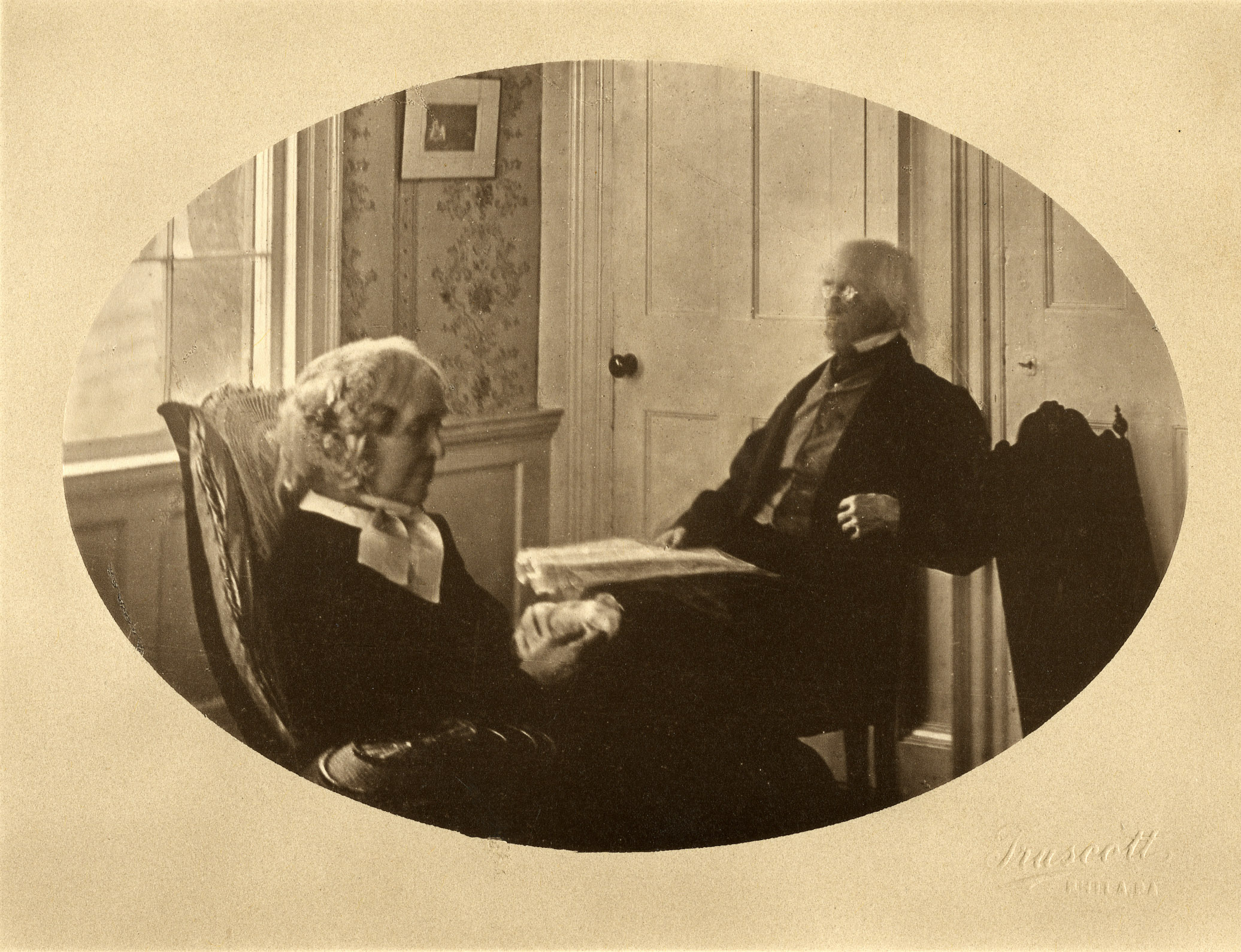Background on Lyman Family

Samuel F. and Almira Lyman in the South Parlor, ca.1865
The descendants of Joseph Lyman (1767-1847) flourished in nineteenth century Northampton, Mass., achieving social prominence, financial success, and a degree of intellectual acclaim. Having settled in Northampton before 1654, just a generation removed from emigration, the Lymans featured prominently in the development of the Connecticut River Valley, and by the Revolutionary generation of which Joseph was part, they had become both prolific and prosperous, enjoying strong connections with learned and commercial circles from Boston to New Haven and New York. Having studied at Yale (1783) and read law, Joseph rose to become a highly respected member of the bar in the Valley, first as a Clerk of Courts and later as Judge of Common Pleas and Probate, as well as High Sheriff.
Joseph's love of learning proved a longer lasting legacy than his contributions to the law, and he littered the pages of Harvard's record of graduates with the names of his sons and grandsons. A son by his first marriage, Samuel Fowler Lyman (Harvard 1818), followed Joseph into the legal profession, becoming the long-time Register and Judge of Probate in Hampshire County. Another son by a second marriage, Joseph (1812-1871; Harvard 1830), shared his half-brother's antislavery sentiments, but abandoned his pursuit of the law in favor of engineering and investment in railroads. A third son, Edward H.R. Lyman, entered into a mercantile house while still in his teens, becoming a partner in the prominent New York firm of A. A. Low & Brother, after marriage into the Low family. Not to be outdone by their brothers, Joseph's daughters also enjoyed the privilege of connection: Susan Inches Lyman married the prominent geologist Joseph Peter Lesley, an officer of the American Philosophical Society and professor at the University of Pennsylvania, while the youngest Lyman child, Catherine Robbins Lyman, married Warren Delano, grandfather of President Franklin Delano Roosevelt.
Succeeding generation of Lymans only deepened the Harvard connections and inquiring spirit. The more prominent among them was Samuel's son Benjamin Smith Lyman (Harvard 1855), who became a noted mining engineer and student of Japan, while two of Edward's sons also shared ties to Harvard and the sciences: Joseph (1851-1883) graduated with a degree in the natural sciences in 1873 before joining his father and grandfather as a partner in Low & Bros., while Frank (Harvard 1874), built on his Harvard foundation to pursue additional studies in the natural sciences as a post-graduate in mining-engineering at MIT, followed by a master's degree at Columbia School of Mines (1878) and still more study in Germany and at the Ecole des Mines in Paris. Joseph died in 1883, just 31 years old, while Frank ultimately became President of the Brooklyn Gas Light Co.

